NOTES FROM BRUSSELS explores the life choices of three women working in the competitive ‘Brussels bubble’ as they pursue their European dream.
The documentary NOTES FROM BRUSSELS follows three women working behind the scenes of European politics: a young French political assistant in the European Parliament, a Polish trade journalist and a German top EU official. Just like the film's director and narrator, the women moved to Brussels
NOTES FROM BRUSSELS explores the life choices of three women working in the competitive ‘Brussels bubble’ as they pursue their European dream.
The documentary NOTES FROM BRUSSELS follows three women working behind the scenes of European politics: a young French political assistant in the European Parliament, a Polish trade journalist and a German top EU official. Just like the film's director and narrator, the women moved to Brussels at the onset of their careers, longing to contribute to Europe. But where the director left this setting after a burnout, these women stayed. The documentary examines their personal sacrifices in pursuit of a European dream.
Most of the footage for this film has already been shot. But to finance the editor, the sound designer and the colourist and to mould 100 hours of footage into a gripping story to submit to film festivals worldwide, your support is crucial
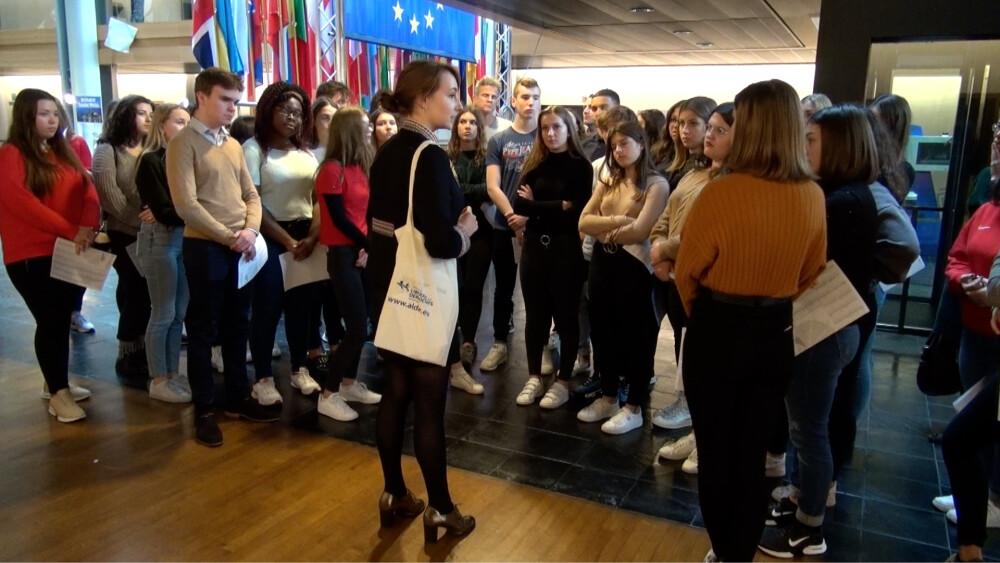
The film
Filmed between 2017 right into the current corona crisis, we experience how time in the 'Brussels bubble' impacts the women’s lives. As they internalize a European mindset and adapt to the intense work-rhythm we wonder: to what extent can the women heed their inner voice calling them to slow down and to not estrange too much from their roots? Along the way, the director realizes how she herself has become an outsider to this world she once belonged to. Now a mother of three young boys and back living in Brussels, she recognizes elements in the women’s struggles that in her case triggered a burnout. What is the price of her choice to leave this worksetting and the main characters’ choice to stay? How to embrace reality as it unfolds?
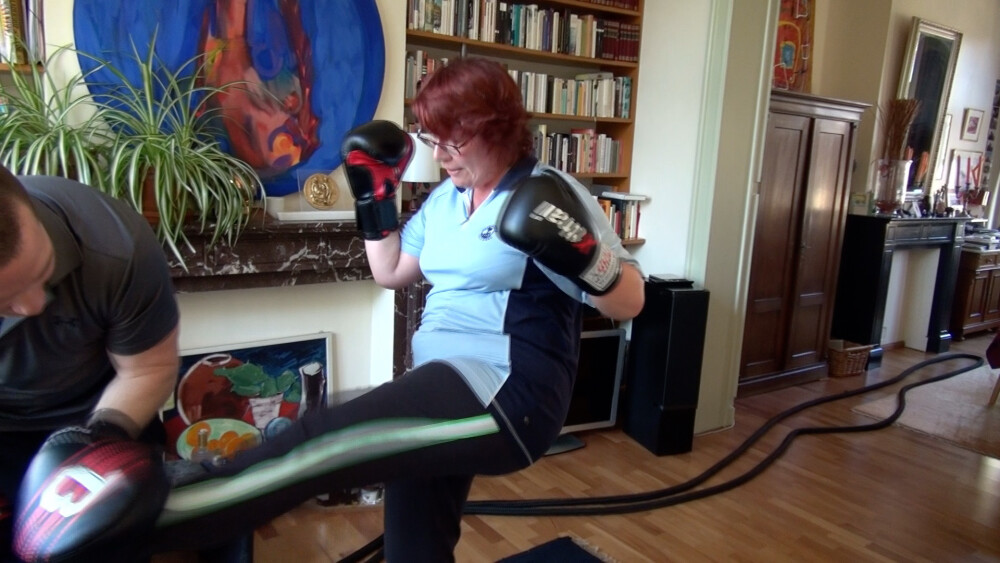
In the film Anne-Cécile has just landed her coveted job as political assistant. As she steers French visitors groups through the European Parliament and defends 'Europe' in the face of rising Euro scepticism, she is happy to continue her grandfather’s mission; imprisoned by the Nazi's because of his resistance-work, he reconciled with the Germans right after the Second World and became - like Anne-Cécile - both a 'Germanophile' and 'Europhile'. The hyperactive political environment however slowly starts wearing Anne-Cécile out. How does she transform into the competent EU insider she is now? What are her mechanisms to survive in this competitive setting?
German top EU official Beate starts a new position as Director Migration, Asylum and Migration budgets. During her youth a feeling of guilt about Germany's holocaust past urged her to study the societal structures that made her country arrive there. As the lingering migration crisis and rise of populists remind her of these structures, she feels she can at least help by financing concrete projects. But as she gets sucked into a heavy workload her body struggles with the effects of decades of stress. Why and how does she keep on adapting? And what does the story of the love of her life whom she left behind in Berlin at the start of her career, tell us about the 'Brussels bubble'?
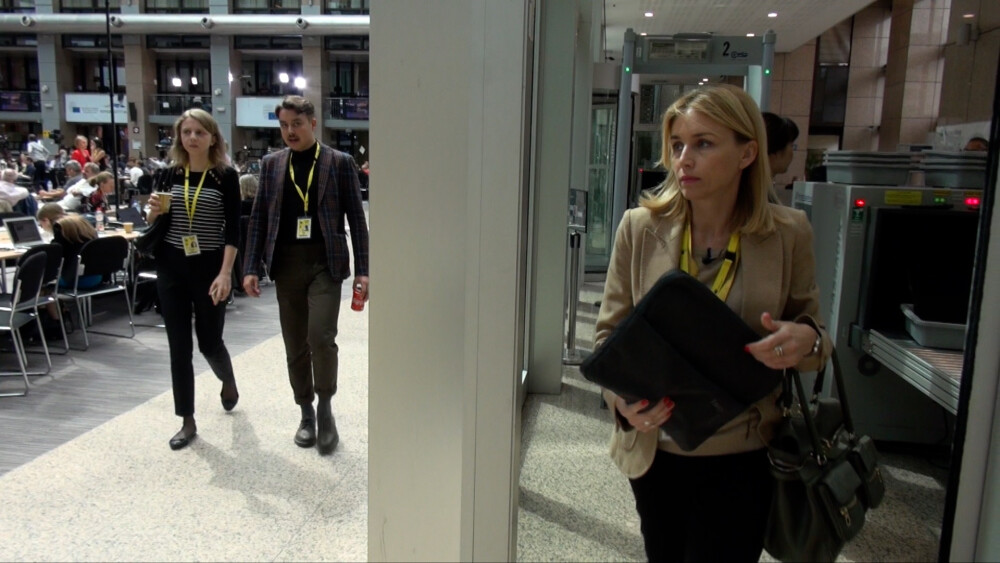
In the EU press centers Polish trade journalist Joanna mourns her country’s direction under the current authoritarian PIS-regime. Yet at the same time she dreams of a return to Poland with her young family. Back in Poland, memories pop up of herself as a student longing for Europe’s freedoms in that hopeful era right after the fall of communism. Does she manage to connect with the fears behind the PIS-support? And after 13 years of ‘Brussels’, will she be able to feel at home again in Poland?
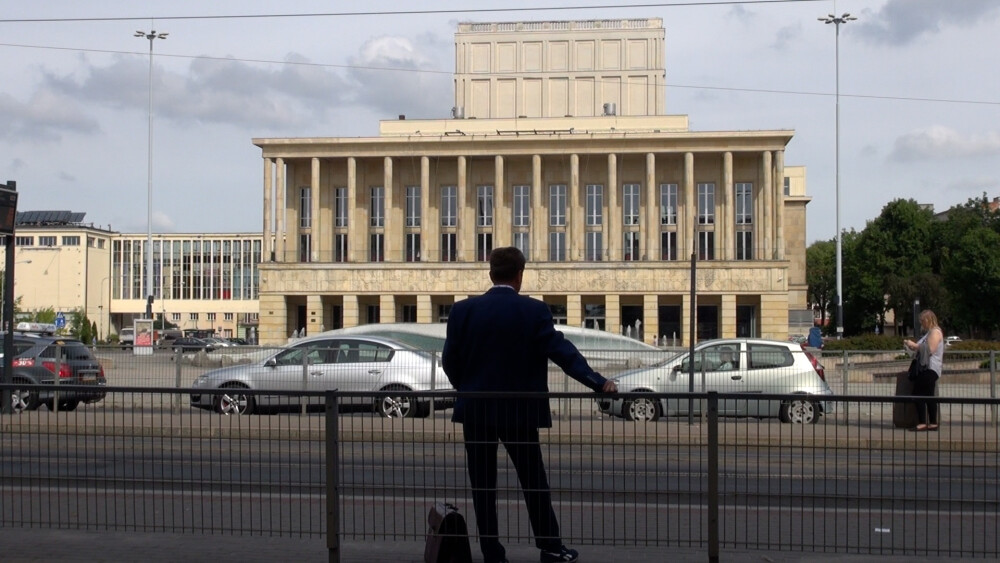
Why this documentary?
In 2016 I moved back again to Brussels with my family. Strolling along the EU institutions, memories popped up of earlier versions of myself; a young political assistant in the European Parliament; then a Dutch diplomat who regularly travelled to Brussels for EU meetings. As I reconnected again with friends from my ‘first round’ in Brussels and met new people, I loved their open mindset and European perspective. To me this means a curiosity for each other and an acceptance that we are all molded by our own backgrounds; that we need to listen to one another in order to find a common path. I noticed how many of these Europeans in Brussels had found meaning in their EU-careers. In an almost melancholic way ‘Europe’ got hold of me again and it is from that feeling that this film idea sprung. As I was filming the women, subconsciously I was examining whether I made the right choice to leave this work-environment behind me, whilst at the same time being well aware why I left.
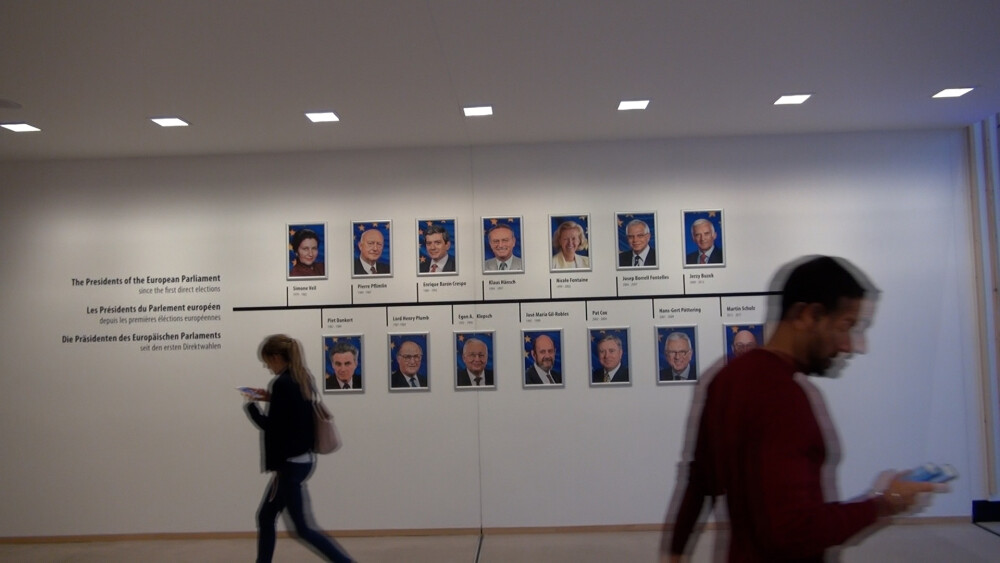
Through the stories of my main characters I want to show the human face behind ‘Brussels’; the face of the women's devotion as well as the inner struggles that come along with living this intense work-rhythm in Brussels. Is it the women who choose this work-routine or does the work-routine impose itself? And how to stay in touch with your roots when this almost addictive European reality shapes you and, as it were, slowly absorbs you?








